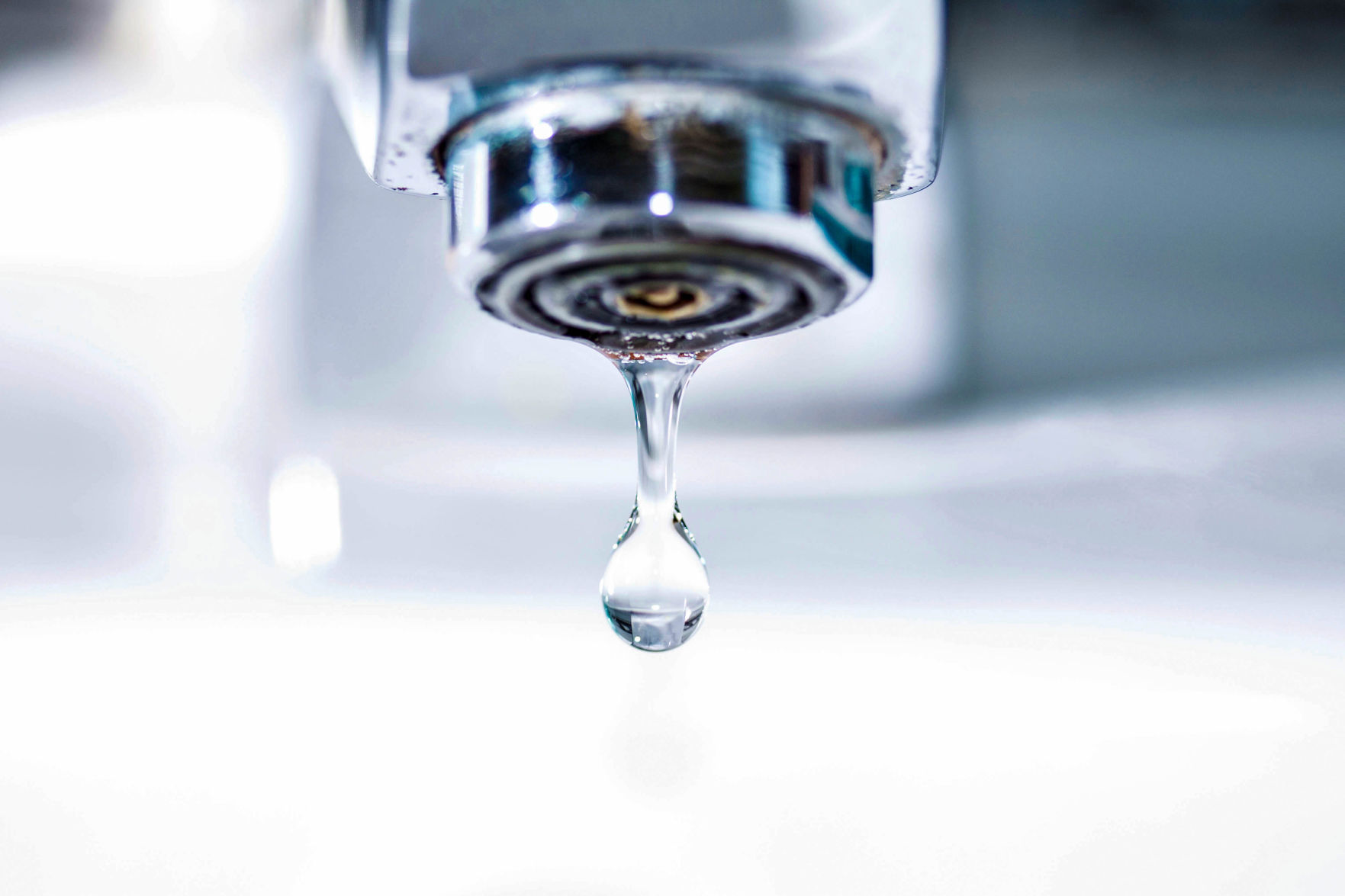The Trenton Water Works, which provides drinking water to the City of Trenton and Lawrence and Hopewell townships, is on track in making improvements to the city-owned water utility.
That’s the message that was delivered by David Smith, the acting director of Trenton’s Department of Water and Sewer. He spoke at the Lawrence Township Senior Center on Jan. 22, in the fifth and final session in a series of public meetings to update Trenton Water Works customers.
Smith, who was appointed to the acting director position earlier this month by Trenton Mayor Reed Gusciora, outlined the water utility’s $405 million capital improvement plan and the 26.5-percent increase in the water rate needed to pay for it.
“Our vision is to develop a superior water system,” said Smith, who was hired as the Trenton Water Works chief engineer in June 2019. He is serving in the acting director’s post for 90 days while the search is on for a permanent director.
Smith said the capital improvement plan, which will be implemented over a six-year period, resulted from an administrative consent order issued by the New Jersey Department of Environmental Protection in 2018.
The administrative consent order is intended to resolve outstanding issues that include needed upgrades to the water utility’s infrastructure, plus staffing, operations and public notification issues.
The proposed $405 million capital improvement plan earmarks $242 million for water distribution system improvements. This includes the $150 million lead service line replacement program.
The lead service line replacement program will replace an estimated 36,700 lead and galvanized steel water service lines within five years. This includes 2,383 customers in the southern end of Lawrence Township, which is served by the Trenton Water Works.
In Hopewell Township, none of the homes in neighborhoods served by Trenton Water Works are affected because they were built after 1963.
Work on the lead and galvanized steel water service lines project began this month, Smith said. The contractor plans to send out two or three crews, who will be able to replace four to six lines per day. The property owner will pay up to $1,000 for the work.
Smith said the proposed capital improvement plan earmarks $24.9 million for upgrades to the water filtration plant, and $92.6 million for water storage and pump station improvements.
The 100-million-gallon reservoir on Pennington Avenue in Trenton will be replaced with a 20-million-gallon water storage tank. Water storage tanks of approximately 40 million gallons each will be built in the four towns served by the Trenton Water Works – Lawrence, Hopewell, Hamilton and Ewing townships.
Establishing a decentralized water storage system will improve the water utility’s resilience, and also resolve the need for system-wide “boil water” advisories in an emergency, Smith said.
The rest of the money in the capital improvement plan would be spent on structural, security and electrical improvements, as well as on engineering services, he said.
But to pay for those upgrades and improvements, a water rate increase – the first one in 12 years – would be necessary, Smith said. Approval would come from the Trenton City Council, possibly as soon as next month. It does not need to go before the New Jersey Board of Public Utilities.
The proposed 26.5-percent increase would raise the average residential customer’s monthly bill by about $11 – from $41.16 per month to $52.15 per month. This compares to the average monthly bill of $87.66 for a New Jersey American Water residential customer, he said.
The rate hike affects all Trenton Water Works users, Smith said. It includes residential and commercial users in the City of Trenton, and Lawrence, Hopewell, Hamilton and Ewing townships.
“We have a vision. We need the money to put it in place,” Smith said.
In addition to requiring upgrades to the water system, the administrative consent order calls for the Trenton Water Works to fill staff vacancies, which it has succeeded in doing, Smith said. The water utility filled 65 vacancies in 2019, including 35 since September. This puts overall staffing at 95 percent for normal operations, he said.
“We handle routine and emergency work well. We need to hire more engineers to handle more complex projects,” Smith said.
The administrative consent order also required the Trenton Water Works to improve its communications and public outreach efforts, said Trenton Water Works spokesman Michael Walker. He attended the Jan. 22 meeting in Lawrence Township.
Walker acknowledged that the Trenton Water Works lacked a communications policy, and establishing one was the first thing that he did. The water utility has a Facebook page, a website, uses newspaper advertisements and sends letters directly to its customers.
The Trenton Water Works recently launched an emergency communications program called TWW-Connects, that is essentially a reverse 9-1-1 system. It allows registered residents to receive alerts about their drinking water, such as whether to boil it before using it.
“It is transparency. Nothing should be a secret. Our goal, as we begin this six-year journey, is that you are aware of every step of the way on this journey,” Walker said.

